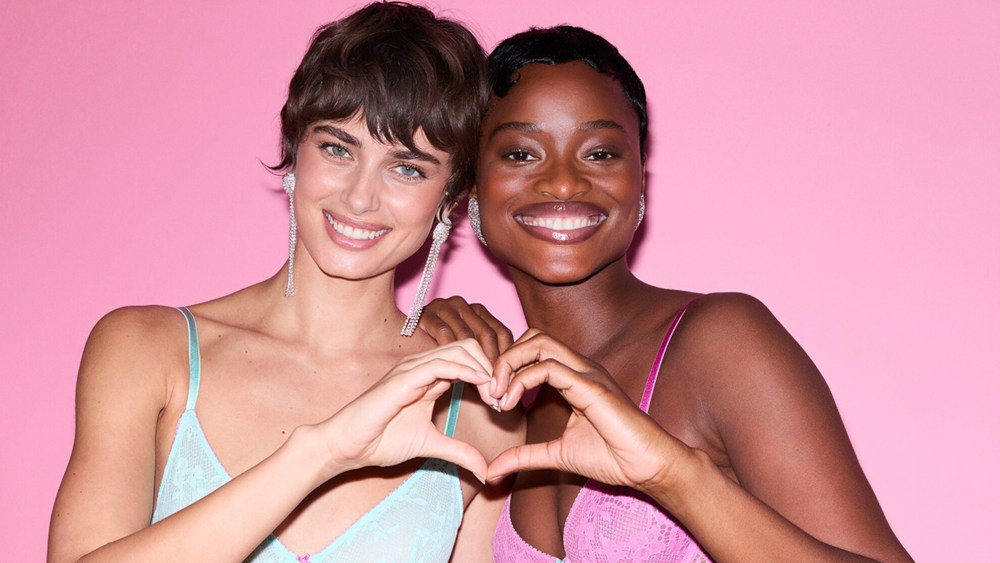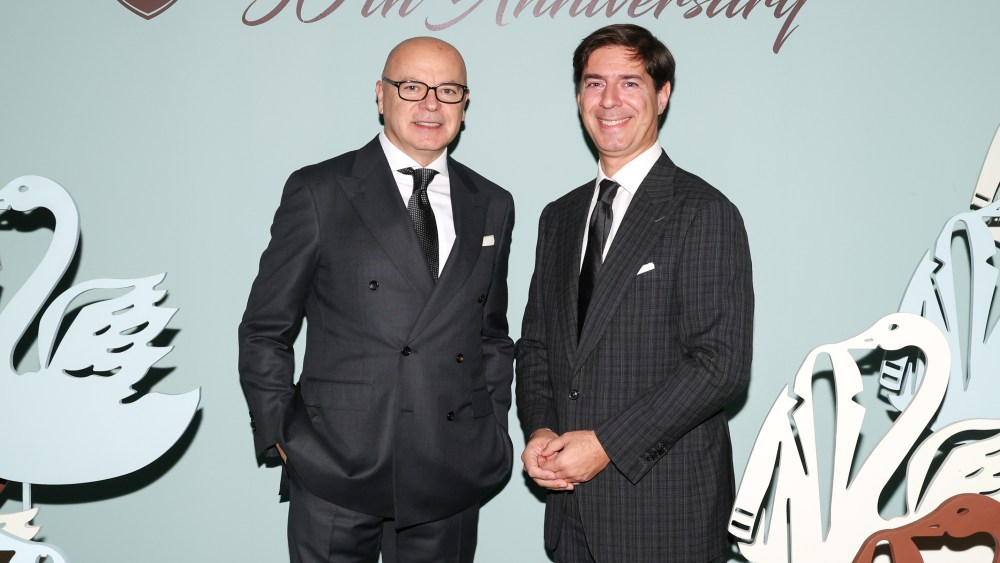Updated 12:49 p.m. ET June 16
Victoria’s Secret & Co. has another unhappy investor calling for change.
The lingerie giant, which has been working on a reboot under chief executive officer Hillary Super and fending off BBRC International, is now taking flack from James Mitarotonda, whose Barington Capital has a stake in the company of more than 1 percent.
Mitarontonda, chairman and CEO of the activist investment fund, has pushed for change at Victoria’s Secret before. Last time he was able to get on the inside through a consulting agreement with the company that lasted from 2019 until Victoria’s Secret was set up as an independent company in 2021.
You May Also Like
But in an open letter to the retailer’s chairperson, Donna James, Mitarontonda had a long list of complaints and pointed to a 57.2 percent stock decline since the spin off.
In addition to the $2.4 billion in market capitalization lost since the public listing, Mitarontonda highlighted:
- Declines in revenue and gross margins and increases in inventory that “reflect deep-rooted operational and strategic shortcomings.”
- Senior management turnover and a lack of marketing and merchandising focus.
- Super’s “limited chief executive and public company experience.”
- And her focus on relaunching Pink and expanding into athletic wear “while failing to prioritize the company’s core business and international growth.”
Victoria’s Secret’s focus has shifted in recent years. The brand was long known for its overt sexiness and televised runway shows, but suddenly found itself on the outs and criticized for catering to the male gaze as cultural sentiment shifted.
Now Victoria’s Secret, which relaunched its runway show last year with women at the helm, is feeling its way forward and trying to find the right balance for the business.
“We believe that the company’s attempt to simultaneously embrace disparate cultural narratives has resulted in a diluted brand identity, while its core business — Victoria’s Secret’s leading bra and intimate apparel franchise — has suffered from seeming inattention and mismanagement,” Mitarontonda said.
He said the company should be “reestablishing merchandising discipline, launching bold, exciting and imaginative marketing campaigns, and, where appropriate, reintroducing successful legacy elements, such as the iconic Angels campaign.”
The activist called for the company to consider replacing most or all of its board members.
The company told WWD in an email: “Barington has not sought to engage with us but we look forward to discussing their views with them. As outlined on our March and June earnings calls, bras and beauty are at the center of the Victoria’s Secret Path to Potential strategy, and these efforts are showing momentum in spite of the challenging market environment. While we have more work to do, we are already delivering meaningful progress, including exceeding revenue and adjusted operating income guidance in the first quarter. We are confident that executing our strategy under the new and experienced leadership team will continue to unlock value for our shareholders.”
Already, Victoria’s Secret’s board was under the investor microscope.
Australian entrepreneur Brett Blundy’s BBRC has a 12.9 percent stake in the company and has grown increasingly vocal about the business.
The board has sought to keep BBRC at bay, installing a poison pill shareholder rights plan to prevent the retailer from being bought on the open market without the buyer negotiating a control premium with management.
But Mitarontonda called the poison pill “a step in the wrong direction” and said it could “deter potentially value-enhancing proposals.”
“The company still maintains an 18.3 percent share of the North American market for women’s underwear and nightwear and the Victoria’s Secret brand has endured across generations, with significant loyalty among younger consumers and an impressive online following,” the activist said.
Those strengths aren’t necessarily valued on Wall Street where the company has a market cap of under $1.5 billion despite annual revenues of more than $6.2 billion.
Investors seemed to like the idea that Barington — a veteran of many retail activist campaigns — is pushing Victoria’s Secret to sharpen its business. Shares of the company increased 2.3 percent to $18.61 in midday trading Monday.
But Mitarontonda sees much more there that the market’s missing.
“We estimate the value of Victoria’s Secret beauty business at $17 to $20 per share, based on wholesale revenue of approximately $700 million, peer enterprise value to revenue multiples of 1.9 to 2.4-times, and 79.8 million fully diluted shares outstanding,” he said.


